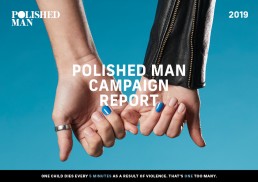evac Accelerator
The true measure of our society can be found in how we treat our most vulnerable members. Yet, according to the Australian Institute of Family Studies, every 90 seconds a new case of child abuse is reported to authorities in Australia.
The Ending Violence Against Children (evac) Accelerator has been specifically designed to support social impact ventures focusing on trauma prevention and trauma recovery programs for children who are at risk of or have suffered violence.
Our understanding of violence against children is that it takes many forms, including physical, sexual, and emotional abuse, and may involve neglect or deprivation.
Violence occurs in many settings, including the home, school, community and over the Internet. Similarly, a wide range of perpetrators commit violence against children, such as family members, intimate partners, teachers, neighbours, strangers and other children.
evac aims to address the problem by supporting early-stage ventures with innovative solutions to addressing violence against children through prevention and recovery programs.
We are looking for the most ambitious, game-changing social enterprises working to end violence against children in Australia for the first evac Accelerator.
The Polished Man Campaign & evac
The Polished Man campaign has raised almost $6 million dollars over the past six years. These funds have been channelled both internally into the ygap entrepreneurs who have a focus on ending violence against children as well as external partner programs with aligned mission and vision.
ygap has designed an accelerator specifically supporting Polished Man’s mission which will support social impact ventures focused on trauma prevention and trauma recovery for children in Australia.
The Facts

One in eight people aged 18 years and over experienced physical and/or sexual abuse before the age of 15

Every 90 seconds a new case of child abuse is reported to authorities in Australia (355,000 reports in 2015-16)

In Australia one in four adults – approximately 5 million people – are estimated to have experienced significant childhood trauma. This trauma occurred in their home, family, neighbourhood, or within institutions

Domestic and family violence affects children’s physical and mental wellbeing, development and schooling, and is the leading cause of children’s homelessness in Australia
FAQs
Have a question? Check out our FAQs first to see if we’ve answered it. If not, get in touch with us and we’ll be happy to answer any question you have.
Violence against children takes many forms, including physical abuse, sexual abuse, emotional abuse, neglect and witnessing domestic violence. Violence occurs in many settings, including the home, school, community and over the internet. Similarly, a wide range of perpetrators commit violence against children, such as family members, intimate partners, teachers, neighbours, strangers and other children.
At the moment, we only accept ventures based in Australia with impact in Australia.
Being a part of the evac accelerator is free. We do expect participants to cover costs of transportation to the venue (including flights), though your accomodation and food will be paid for during the accelerator.
Violence against children is a broad problem and addressing it can take many forms. We use UNICEF’s six strategies for action and the WHO’s seven strategies for ending violence against children as a guideline for identifying ways of ending violence. If you are unsure if you fit in these strategies, please feel free to contact us.
We categorise prevention as anything that is working to reduce the likelihood of violence in the future. How you go about doing that can be anywhere from changing societal norms, educational components, anti-bullying, online safety, or many others. Recovery is classified as helping children who have experienced violence, or adults who experienced violence when they were children.
Contact Us
For more information, contact us using the form below.
Need Help?
If you require assistance or if you would like to talk to a trained professional about the issues described here, please call Kids Helpline on 1800 55 1800 or Lifeline on 13 11 14. If you believe a child is in immediate danger call the Police on 000.
The following lists state and territory departments to which you can report suspected child abuse and neglect: https://aifs.gov.au/cfca/publications/reporting-abuse-and-neglect
Information on responding to children and young people’s disclosures is here: https://aifs.gov.au/cfca/publications/responding-children-and-young-people-s-disclosures-abu
Additional resources are here: https://aifs.gov.au/cfca/topics/child-abuse-and-neglect/resources

